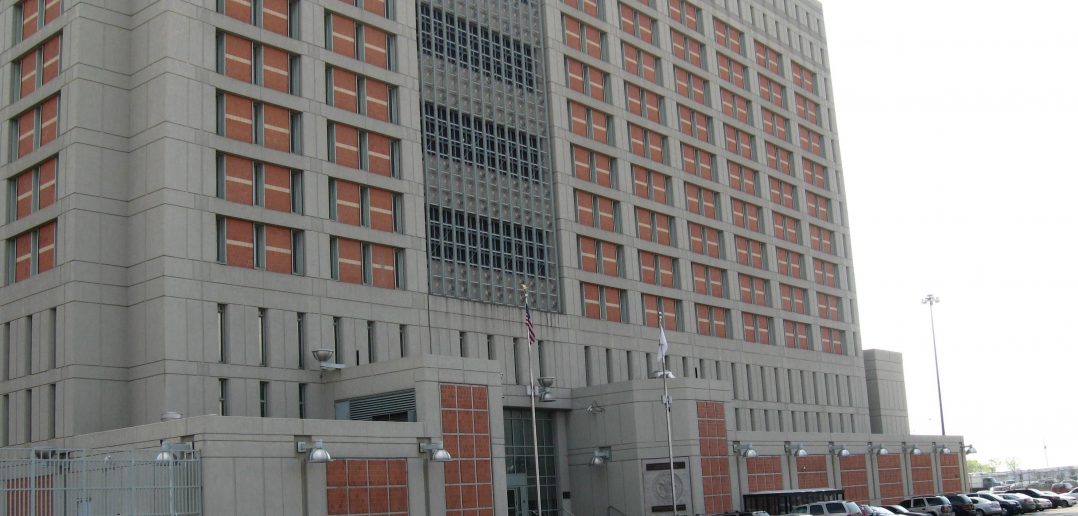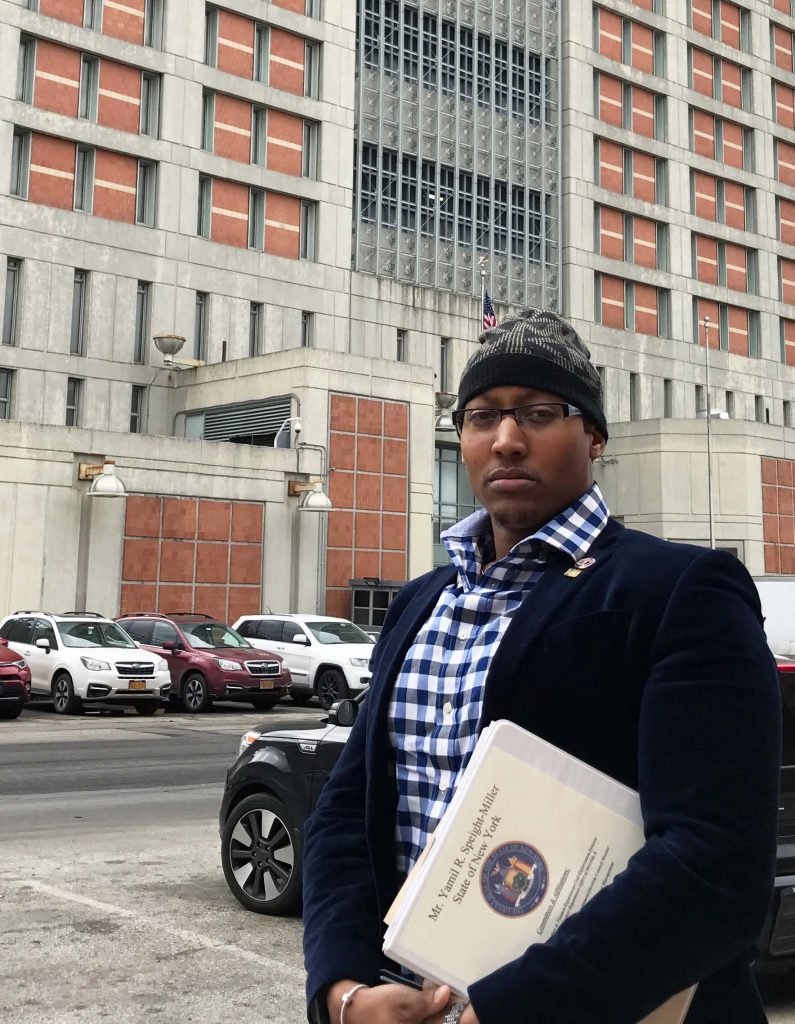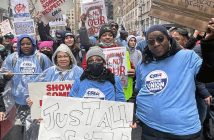BROOKLYN — When a recent power outage created a potentially dangerous situation for inmates and workers at a federal correctional facility, CSEA member Yamil Speight-Miller used his years of training to defuse a potential powder keg.
During some of the coldest days of the year, some 1,600 inmates and hundreds of workers had no power and heat at the Metropolitan Detention Center in Brooklyn. The grave situation resulted in daily, round-the-clock protests by family members, elected officials and supporters.
‘Quality of life was being compromised’
Having spent several years as a corrections officer at Rikers Island and with a background in public and human affairs, Speight-Miller, a tax compliance agent at the state Department of Taxation and Finance, was closely monitoring the situation when a call came in from the mother of an inmate.
Speight-Miller used his experience and commitment to social justice to speak out for justice for the inmates and workers.
“What captured my attention was the fact that quality of life was being compromised and it was quality of life not specific to inmates or officers; it was humanity period,” said Speight-Miller.
On the seventh day of the crisis, after making numerous calls to elected officials, local and federal agencies and even the White House, Speight-Miller traveled to the facility and joined hundreds of protesters and sympathizers.
“As a union member, we stand for the same things as any other person whether in prison or at a job; we ask for acknowledgement of basic human rights and protections,” said Speight-Miller, who spent the next two frigid days camped out across the street from the prison.
Taking action
With the constant banging on prison windows by inmates and the anger and frustration growing outside, Speight-Miller knew from experience that the situation outside was becoming untenable. So, he literally grabbed the bullhorn.
“I took that moment to teach, in the middle of what could have been a dangerous situation for the city, the importance of jurisdictional authority and civic engagement,” said Speight-Miller.
He also allowed family members and supporters to vent their frustration and express their solidarity with inmates and workers. While a brief scuffle did ensue between prison guards and a parent concerned that an inmate was not getting his medication, Speight-Miller worked with others to defuse an otherwise volatile situation.
Importance of unions
On the ninth day, power and heat were finally restored.
“The primary function of a correctional facility is the care, custody and control of inmates,” said Speight-Miller. “When we, as government, exhibit that we have lost control, lack care or show no concern over who we have in custody, then we have failed or we are part of the failure of the justice system.” The power outage at this federal facility and the way it was subsequently mishandled begged the question if it could happen at any number of state correctional facilities in New York.
“We are adamant about protecting our members and the inmates,” said CSEA Occupational Safety and Health Specialist Jeff Hyman.
Noting that unsafe conditions are usually governed by the state Public Employees Safety and Health (PESH) Bureau, code violation complaints can also be made to the Buildings Department. Where there are no specific safety standards, the general duty clause, with specific requirements, can also be applied.
In a post-Janus world, for Speight-Miller the crisis underscored the importance of sticking with our union.
“That’s why I tell members, ‘don’t opt out. If you opt out, you can get hurt,’” said Speight-Miller.
— David Galarza





